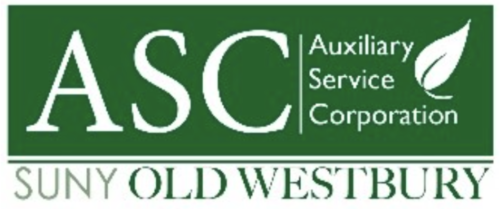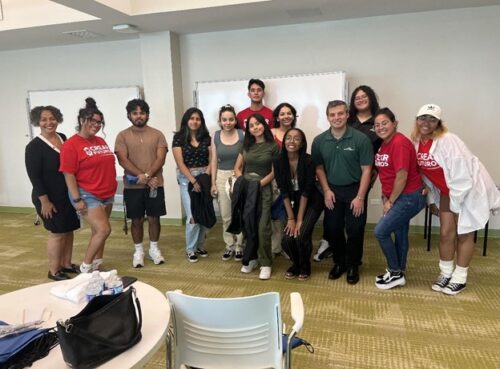SUNY Old Westbury graduate Allan D. Hunter set foot on the OW campus in 1985 on a unique quest, especially for a male, especially at the time: He wanted to major in Women’s Studies.
Hunter’s two books, That Guy in our Women’s Studies Class, and GendeerQueer: A Story from A Different Closet, highlights his journey of finding himself which includes guidance from OW. His Amazon author’s profiles notes that Allan, “came out as a heterosexual sissy and gender invert in 1980, long before the word ‘genderqueer’ was in use.”
The books are the story of his growing awareness of his own gender identity and how it affected him, his family, classmates, and friends. It begins with his elementary-school years and continues through his time at OW and beyond. The following is a recent question and answer interview with Hunter.
The Catalyst: This story takes place on the SUNY Old Westbury campus between 1985 and 1988, when you were an undergrad. What was your experience like on campus? What made you decide to attend the OW campus? What years were you there? And how impactful was your OW experience on these stories and your life?
Dr. Hunter: 1980 was when I came out, which was back when I was a University of New Mexico student in Albuquerque. As described in the first book (GenderQueer), coming out resulted in me being incarcerated in a psychiatric institution, and that in turn resulted in me being withdrawn from enrollment at UNM by my parents.
Between 1980 and 1985 I wandered around and tried to figure out what to do with it, what to do next, so it took me a while before it dawned on me to go back to college, this time as a women’s studies major.
The Catalyst: What made you decide to study Women’s Studies at OW, and did you ever waver from that decision throughout your time at OW? Did you think of another major at any point?
Dr. Hunter: See page 27 and then pages 31-32 in the second book (That Guy in Our Women’s Studies Class). In essence, I wanted to be an *activist* about this newfound gender identity, and it occurred to me that I could major in Women’s Studies and thereby participate in discussions of this kind of stuff with other people who cared about those kind of issues: feminists! I wanted to be near a major city. Old Westbury had a Women’s Studies program and was reasonably near a seriously major city.
The Catalyst: What was your experience like on campus and how impactful was your OW experience on these stories?
A: Well, the first 188 pages of the second book (Guy in Women’s Studies) are mostly focused on that [Studying Women’s Studies at OW]. The remainder takes place at Stony Brook. Certainly, the story is specifically about ME and MY agenda, unfurling AT the college, not just about what it’s like to be at SUNY / Old Westbury, but the impact of being there is pretty inseparable from the impact I had (or tried to have) on the campus community. We affected each other.
The Catalyst: The OW campus prides itself on being a diverse community. Was it that way when you attended? Did all the faculty and students embrace you?
Dr. Hunter: I came to Old Westbury with the plan to delve directly into gender politics, sexism, patriarchy. But very soon, I was challenged to investigate race as another element in social marginalization and to see how being white or nonwhite affected one’s understanding of feminism and patriarchy. This is a strong theme in the first 2/3 of the second book. Meanwhile, I was a psychiatrically labeled/diagnosed person, and a homeless person, and had become a de facto activist on those issues as well. This was yet another marginalization and it, too, bounced off of and interacted with both race and gender issues in complex ways.
Not all of the faculty nor all of the students embraced me, either personally or from the standpoint of my outspoken identity issues or my other political stances. But *mostly* I felt listened to and respected at SUNY / Old Westbury, if not always understood. The challenge for me was to find ways of expressing my issues and identity. I didn’t have a road map and I was still very much in the process of learning, and learned a lot from other students and from the faculty there, as well as from other activists elsewhere.
The Catalyst: After your undergraduate studies at OW, where did you move onto and besides a BA what degree did you receive? What forms of work did you do after graduation? What do you do now? Is it related to your degree?
Dr. Hunter: Part 3 of the second book (Guy in Women’s Studies) takes place at SUNY / Stony Brook where I went to pursue a PhD in sociology and an MSW in social work to continue my studies.
I thought of social work as the applied and practical part, and sociology as the theoretical part, of making an actual social impact.
As explained in Part 3, I did not complete my sociology degree and did not feel welcome to move forward trying to use Women’s Studies (or feminism in the larger sense) as my platform. I worked as an elder abuse case worker (family violence and exploitation issues) for four years after my academic years ended, but our social work organization was defunded in 1997 and I never got another job in social work. I have worked on a volunteer / unpaid basis trying to do gender activism, both *during* those years and after, counseling and speaking out and writing theory and position papers and so on. My paid work since 1998 has mostly involved being a database geek and has not been related to, or very relevant to, my books or my main purpose and goals in life.
The Catalyst: On Pronouns—what are your thoughts and what pronouns do you use?
A: It’s a respectful and appropriate question. I have no easy answers [and he points to his blog with a complete answer].
As well as the signature at the bottom of all his emails: Allan Hunter (she/he/they \they’re all wrong, not picky.)
https://ahunter3.dreamwidth.org/50685.html
Both books are available on Amazon.







